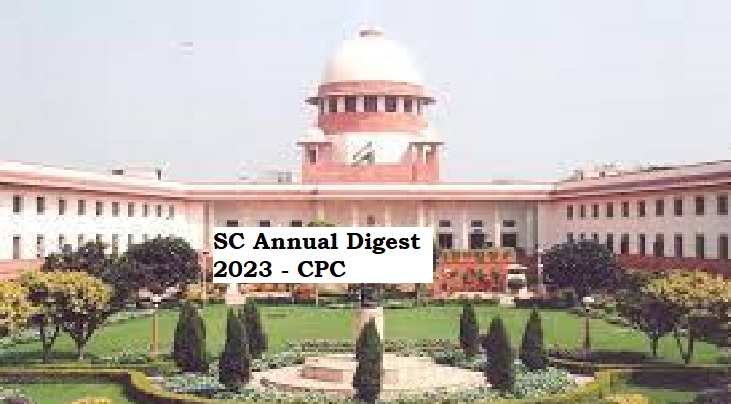


In the realm of civil procedure, the Code of Civil Procedure, 1908, stands as a comprehensive guide governing legal proceedings in India. A crucial facet of this legal landscape pertains to civil trials, where the fixing of trial dates assumes paramount significance. The nuanced intricacies of this process find elucidation in the judicial pronouncement of Yashpal Jain v. Sushila Devi, a noteworthy case heard by the Supreme Court in 2023 (2023 LiveLaw (SC) 916 : 2023 INSC 948).
The operative clause in question, encapsulated in Para 2 (v) of the judgment, illuminates the procedural intricacies associated with the fixation of trial dates. The provision posits that the determination of the trial date should be a collaborative effort, entailing consultations with the learned advocates representing the parties involved. This collaborative approach serves a dual purpose: firstly, it recognizes the pivotal role played by legal practitioners in ensuring a just and efficient legal process, and secondly, it acknowledges the practical necessity for advocates to align trial dates with their existing commitments, thereby facilitating a seamless progression of legal proceedings.
The significance of this collaborative approach becomes apparent when viewed in the broader context of legal practice. Advocates, as officers of the court, are integral to the functioning of the legal system. Their active involvement in the fixation of trial dates ensures that the legal machinery operates smoothly, minimizing disruptions and optimizing the utilization of judicial resources. This approach is rooted in the recognition that legal professionals, like any other individuals, operate within a framework of time constraints, necessitating a degree of flexibility in scheduling legal proceedings.
Once the date of trial is successfully fixed through this consultative process, the judgment underscores the imperative for adherence to the established timeline. It emphasizes that, to the extent possible, the trial should proceed on a day-to-day basis. This directive is not arbitrary; rather, it stems from a well-founded rationale grounded in the principles of expeditious justice delivery.
The expeditious conduct of trials on a day-to-day basis is a measure designed to curtail unnecessary delays in the legal process. Delays in legal proceedings not only impede access to justice but can also compromise the integrity of the judicial process. By advocating for day-to-day proceedings, the court aims to streamline the adjudicative process, fostering efficiency and ensuring that justice is not unduly delayed.
Moreover, the insistence on day-to-day proceedings aligns with the broader societal and systemic expectations regarding the timely resolution of legal disputes. In a fast-paced world where time is often of the essence, the judiciary is under an implicit obligation to dispense justice swiftly. Day-to-day proceedings serve as a potent mechanism to achieve this objective, reinforcing public confidence in the legal system.
However, the court's directive acknowledges the practical constraints that may impede strict adherence to a day-to-day schedule. It qualifies the directive with the phrase "to the extent possible," recognizing the need for flexibility in exceptional circumstances. This nuanced approach reflects a judicious balance between the imperative for expeditious justice and the pragmatic recognition of unforeseen challenges that may arise during legal proceedings.
In conclusion, Yashpal Jain v. Sushila Devi, 2023 LiveLaw (SC) 916 : 2023 INSC 948, casts a spotlight on the procedural nuances surrounding the fixing of trial dates in civil trials. The collaborative consultation process with advocates and the emphasis on day-to-day proceedings underscore the court's commitment to efficient justice delivery while also accommodating the practical realities of legal practice. This judgment stands as a testament to the evolving nature of legal procedures, wherein a delicate balance is struck between the pursuit of expeditious justice and the recognition of the challenges inherent in legal practice.
TAGS: INSC 948 Para 2 (v) Procedural intricacies Collaborative approach